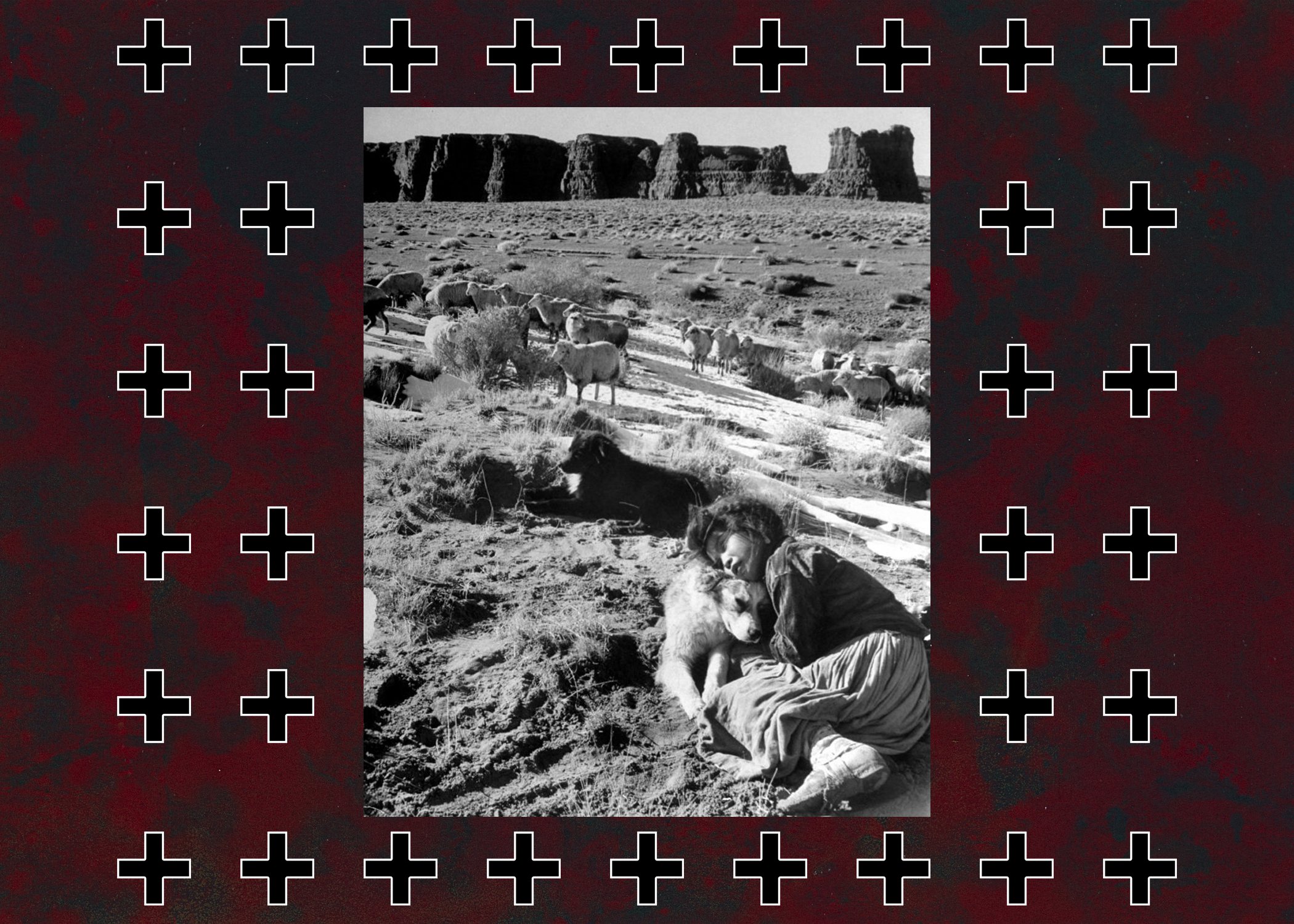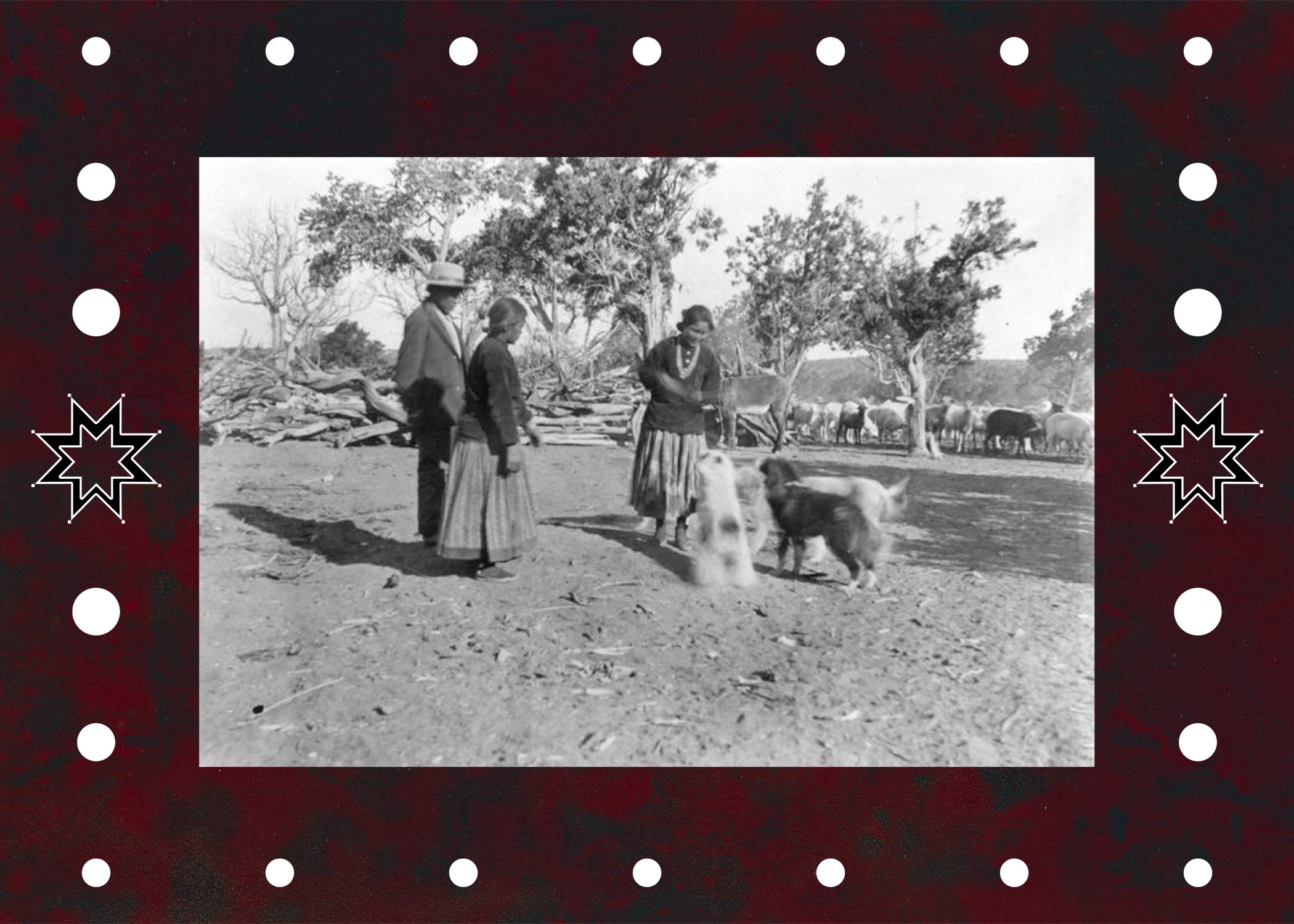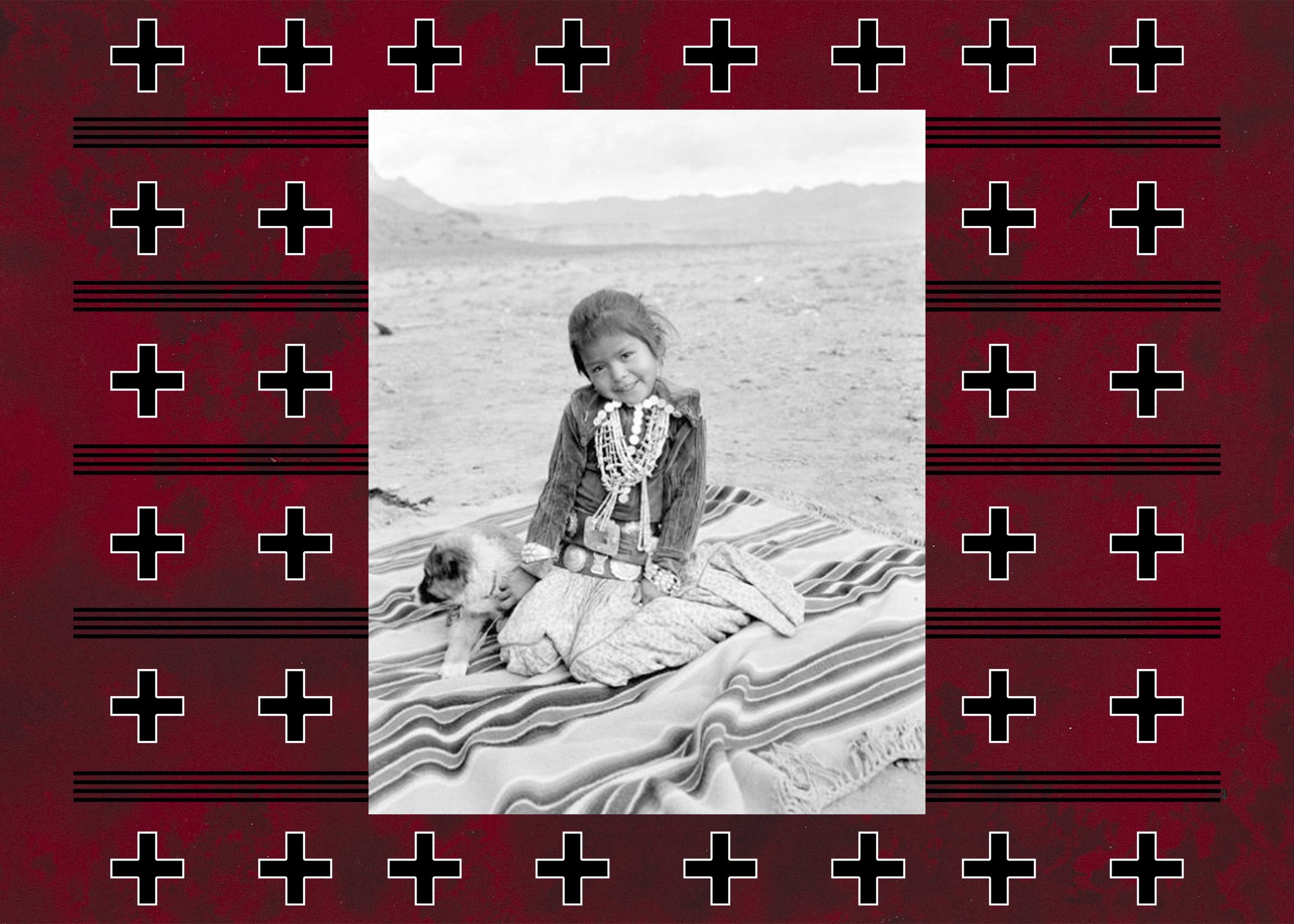Stunt Puppy’s newest collar collection showcases the unique perspectives and work of two Indigenous artists: Chippewa Cree graphic designer and illustrator Kaylene Big Knife and Diné interdisciplinary artist Dakota Mace.
These collars are dedicated to all of the beloved rez dogs in Indigenous communities — so we’re donating 15% of the sales to Red Lake Rosie’s Rescue in support of their mission to reduce the overpopulation, homelessness, disease and malnutrition of dogs and other companion animals on the Red Lake Reservation in Northern Minnesota.
For many Diné, a dog can be seen as kin, one with the family. Historically, dogs within Diné culture were used for herding sheep, guarding livestock, and above all else, protectors of their homes. Today, many dogs are known as ‘rez dogs,’ a term to describe neither a pet nor a wild animal. For many Indigenous people, this is a term of endearment that shows the adoption of the free-roaming rez dog into the family. They can be seen as somewhere in-between worlds, neither wild nor domesticated.
The designs featured comes from our ancestors, the mothers, grandmothers, and daughters before us. Within the Diné culture, our identity and kinship are passed down from them. We introduce ourselves by our mother’s clan, and we, as children, take their family name. Diné women are the center of the family; they are the keepers of our ancestral teachings. Diné women are taught that they are sacred. Through her hands, she carries her children, picks traditional plants, tends to livestock, and practices ceremonies. You can see her history etched within her hands and her silver jewelry - a true matriarch preserving her culture and homeland and protecting her family, much like the rez dog.
For my series “łééchąąyázhí,” honors the dogs within our culture and our deep relationship to our kin. Each piece references our matrilineal culture, our mothers and grandmothers, which these dogs protected. The designs represent our stories and weavings, each connecting to the broader understanding of Hózhó, which means to live in balance. Much like the rez dog, there is a balance of worlds, identities, and stories. They can be seen as our children, our first babies, our łééchąąyázhí (puppies).


